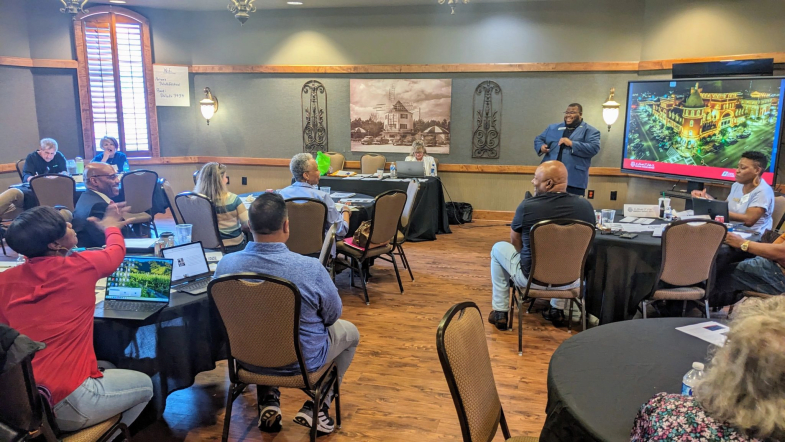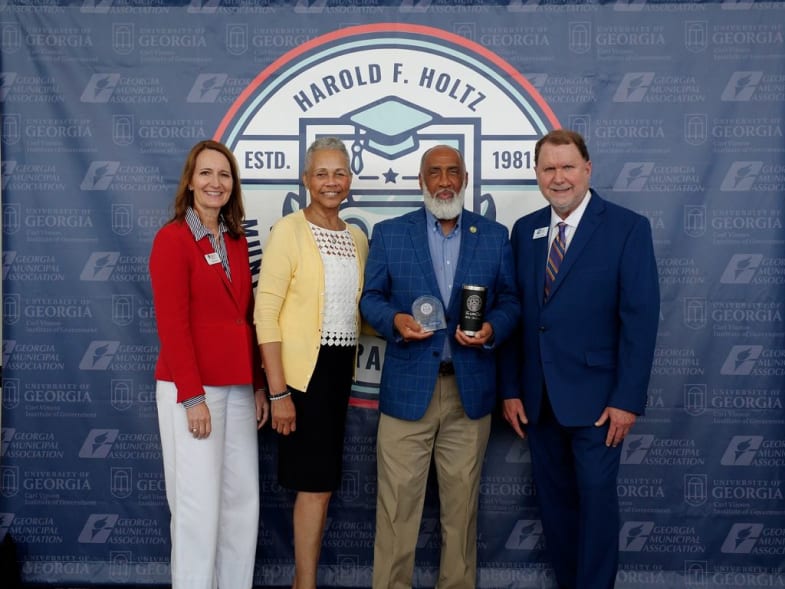
Harold F. Holtz Municipal Training Institute
The Harold F. Holtz Municipal Training Institute is a series of training programs designed to help city officials enhance their knowledge and skills in municipal related matters.


Upcoming Training
View All Upcoming Training
The Municipal Training Institute is operated through a partnership between the Georgia Municipal Association and the University of Georgia’s Carl Vinson Institute of Government. Oversight is provided by the Municipal Training Board, which is comprised of municipal officials and representatives from partnering organizations.
Training Class Prepares Cities for Disaster Response
The "Steering Through the Storm: Guiding Your Community Through Disaster" training class offers advice on the roles of elected officials during a disaster, best practices or working with staff when the city is embroiled in an emergency, and adopting policies and resolutions relating to disasters.
Learn More
Training Policies
Certificate Requirements
Obtaining Transcripts
Honoring Georgia’s Most Dedicated City Leaders
The Harold F. Holtz Municipal Training Institute’s 400 Club recognizes municipal officials who have completed 400 or more hours of training in leadership, governance, and public service through the Institute. They have also earned all five of the training Institute's training certificates. These honorees represent a distinguished group of municipal leaders across Georgia who are committed to learning, excellence, and strengthening their communities.
Meet the 400 Club Members



